
Did you think about suicide? It is six minutes into the interview when the subject of childhood intrudes — specifically, how it felt to be 12 years old and know that you are gay.
“I didn’t think I’d live very long,” says Ruth Hunt, the CEO of Stonewall, Europe’s largest LGBT rights charity. “I couldn’t imagine a future. So I didn’t think it mattered very much. I didn’t see myself getting beyond 25.”
Twenty-seven years later, Hunt is about to leave the most powerful job in LGBT politics, but the 12-year-old is still there; still here.
“I was completely alone,” she says, her voice tightening. “The loneliness was astonishing and extraordinary, and I think it’s taken me until 39 — now — to be able to acknowledge that, and the impact it had.”
We sit opposite each other in a café in North London, neither Hunt nor BuzzFeed News saying what we know to be true: that there is no contradiction here, between being one of the most influential LGBT people in Britain — responsible for the rights of her community, an £8.5 million budget, and 150 staff — and being that frightened gay child.
The one chases the other.
“It was this real anxiety that I would be left out, left behind,” she continues. “That I was a freak.” It wasn’t just the fact she was a lesbian, but how. Fancying girls is one thing. Being butch, a “tomboy”, is another. Hunt characterizes the chant, echoing through adolescence, from those around her: “Why would you choose to be a dyke when you could just be a normal gay woman?” The poison seeped in.
“I remember trying on one of my dad’s old suits and feeling amazing and very quickly feeling shame. That takes a huge amount of unpacking.”

Today Hunt wears what once shamed her. Her manner alternates between authority and vulnerability, delivered with flashes of sarcasm and old-school camp. She says “darling”. She uses your name. She tries to keep boundaries rigid — keeping quiet when it’s unwise to comment — and defences concrete. Until she can’t.
Hunt will shortly round on the BBC, on British newspapers, on the Labour party, and on the Conservative government. She will lose her temper: railing against commentators who never supported lesbians before yet now claim to do so to justify opposing trans rights. But first, the past intrudes again, rapping on the door to offer explanation for everything that is to come.
The alienation of those early years, unquantifiable and profound, damaged her sense of self, she says. “That stays with you.”
And so, after Oxford University, then nine years in various roles rising up the Stonewall hierarchy, the time would come, in 2014, to act. She was made CEO. She knew what she had to do. “No kid should grow up feeling that lost,” she says. “You can’t leave anyone behind. That’s my philosophy.”
The motto would inform all her decisions at Stonewall: to boost BAME LGBT causes much more, bolstering UK Black Pride (among other ventures); to focus more on schools and sports; and to implement the most radical repositioning in the charity’s 30-year history: the inclusion of transgender people and the campaign for trans rights — in particular, support for easing the process of legally changing your gender.
“In the olden days [of
Stonewall], we’d gone, ‘Gay is two people who love each other,’ and that had
done a massive disservice to people who didn’t fit into that neat story, and
trans kids are completely left behind in that.” Gender identity and sexual
orientation are, while separate, also interwoven, she says. To separate them
out, when there are, for example, gay people who transition and trans people who are
bisexual, all of whom face discrimination, makes no sense.
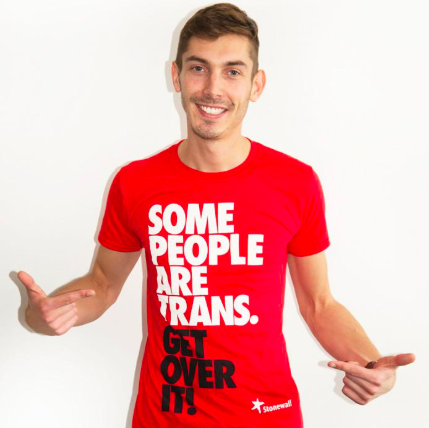
Society was also changing. To shun trans people would have been disastrous, she says. “Stonewall could fail to speak to a generation who were speaking very differently about identity.” There was another reason, too. “The person who abuses the trans woman and the trans man will abuse me tomorrow and you the next day.” She inhales sharply, something she repeats whenever anxiety hits.
The decision to embrace trans rights led to her and Stonewall being engulfed in hostility. Regular deluges on social media. Weekly, sometimes daily, criticism in the media. High-profile lesbians and gay men criticising her and her charity, withdrawing personal donations, signing petitions in protest — moves all eagerly published by right-wing newspapers. (It hasn’t worked overall, though: donations are up 11%.) Some celebrated when her forthcoming departure was announced.
All of which was despite the fact that incorporating trans rights is in line with similar lesbian and gay organisations across the rest of the world. But in Britain, a conservative howl grows: keep the T away from the LGB, keep trans women away from cisgender women, fortify divides, preserve a binary notion of sex, and certainly don’t make legal transition easier.
Hate crimes against transgender people rose by 81% in the 12 months prior to April 2019, an increase the Home Office attributes to better reporting, but still a clear snapshot of Britain today.
Some of those who have attacked Hunt most vociferously describe themselves as radical feminists, but is there anything radical about fighting to keep people in the sex to which they were assigned? “No, I don’t think so,” says Hunt. “I’m pro trans because I’m a feminist, not despite it.” Such opponents have always been thus, she adds.
“I remember radical feminists complaining about [same-sex] marriage and complaining about the Human Fertilisation and Embryology Act that granted more rights to lesbians to have babies, so this idea that the radical feminists loved Stonewall until we brought in trans [rights] is laughable.”
Hunt admits, however, to previously having “mixed feelings” herself about trans inclusion; that as a student in the late 1990s at St Hilda’s, then a women-only college at Oxford, she read feminist theory, and in particular the pioneering work of Germaine Greer, who in 1997 quit as a fellow of Newnham College, Cambridge, after opposing the college’s job offer to a trans physicist. “Why not listen to Germaine Greer?” Hunt says, invoking her mindset at the time. “As a woman at an all-women’s college where they were having these discussions, it was quite complicated.”
But in addition to
reading Greer, Hunt studied Judith Butler, the celebrated feminist theorist who
critiqued the idea that sex is a simple biological binary and the strict
boundaries placed on what constitutes a woman. More importantly still, however,
were Hunt’s experiences. “As a 19-year-old, I started to meet trans people, and
that changed my journey. Thank God.”
The theoretical debates have not abated, however. Increasingly, feminists who oppose trans inclusion self-identify as “gender critical”, believing that gender is simply a patriarchal social construct, and therefore to move from one to the other colludes with a system designed to benefit men, to the detriment of women.
But for Hunt, such ideology has increased hostility not only to trans people but also to anyone who doesn’t conform to gender norms.
“It gets me chucked out of toilets,” she says, referring to the furore surrounding trans women’s use of women’s lavatories that has resulted in many butch lesbians being hounded out of public bathrooms, in the UK and the US. “It happens all the time.” Especially, she says, when she’s with her partner, Caroline.
“We’re told we’re in the wrong place. Women look at the sign [saying ‘ladies’] just to check, while they look you up and down. That’s happening more and more. We’re very polite and say, ‘No, we’re definitely in the right toilets.’” Is she ever tempted to confront the person questioning their right to use women’s toilets?
In a flash, Hunt replies, “No, but I’d love the woman behind me who’s definitely ‘read’ as a woman to do that. We forget you have no power in that situation, and what you need is the person next to you saying, ‘What?!”
In this, perhaps subconsciously, Hunt invokes Stonewall’s No Bystanders anti–hate speech campaign and anti-bullying work, which sees hundreds of schools visited by the charity and given resources to tackle classroom hostility.
The irony for Stonewall’s CEO is that where once she might have felt most attacks from homophobic straight men, now it is also from other women, other feminists, other gay people, whose premise is that trans people are a problem — or a threat.
Using fear of sexual violence, for example, to incite hatred of trans women in the name of feminism is “despicable”, says Hunt. “The assumption that any trans woman is a potential threat is an extraordinary starting point.” Instead, she says, the questions need to originate not from hostile propositions but from good-faith enquiry: What might we learn from trans women about sexism? Are testosterone levels a fair way of deciding who can participate in women’s sports? How do we best manage women’s prisons?
But this is not where the debate is. Some of it is being played out on Mumsnet, where women who use the site tell Hunt to “fuck off”, accuse her of “destroying Stonewall”, and describe hers and Stonewall’s position as “misogynistic” and “evil”. These quotes derive from just a tiny proportion of comments made on one day, under one thread.
Feminist columnists such as Janice Turner at The Times accused Hunt and “extreme trans activists” of campaigning for the “dismantling of safeguards” for women and accused Stonewall of being “taken over by extreme biology-denying activists”. (Biologists refute the idea that sex is binary.)
The Times also interviewed the only one of Stonewall’s founders to disagree with its inclusion of trans people, ignoring, for example, Lisa Power, its lesbian cofounder, who champions trans rights. Similarly, in October, the newspaper published a letter signed by various public figures criticising Stonewall’s trans campaigning, with an accompanying report noting singer Alison Moyet’s signature. The newspaper did not report that Moyet changed her mind the next day, withdrew support for the petition, and stated that she supports trans rights.
Some of the newspaper commentary on trans issues has argued against trans inclusion for the sake of protecting lesbian and women’s rights. At this, Hunt raises her voice, louder and louder, as fury grips.
“Mainstream newspapers running consistently transphobic articles, day in, day out, ostensibly expressing concern about the fate of butch lesbians?!” Hunt sniffs with contempt before finally letting go.
“It’s like, ‘You have not written a SINGLE positive piece about butch lesbians in my ENTIRE ADULT LIFE. Your style pages have not reflected me; your problem pages, your look, your discussion about lesbian identity, has never included me. Don’t you DARE pretend that you are now advocating for me as an excuse to attack trans people. THAT makes me angry.”
Fellow customers in the café look round.
What effect have all the attacks had on Hunt? Her face freezes.
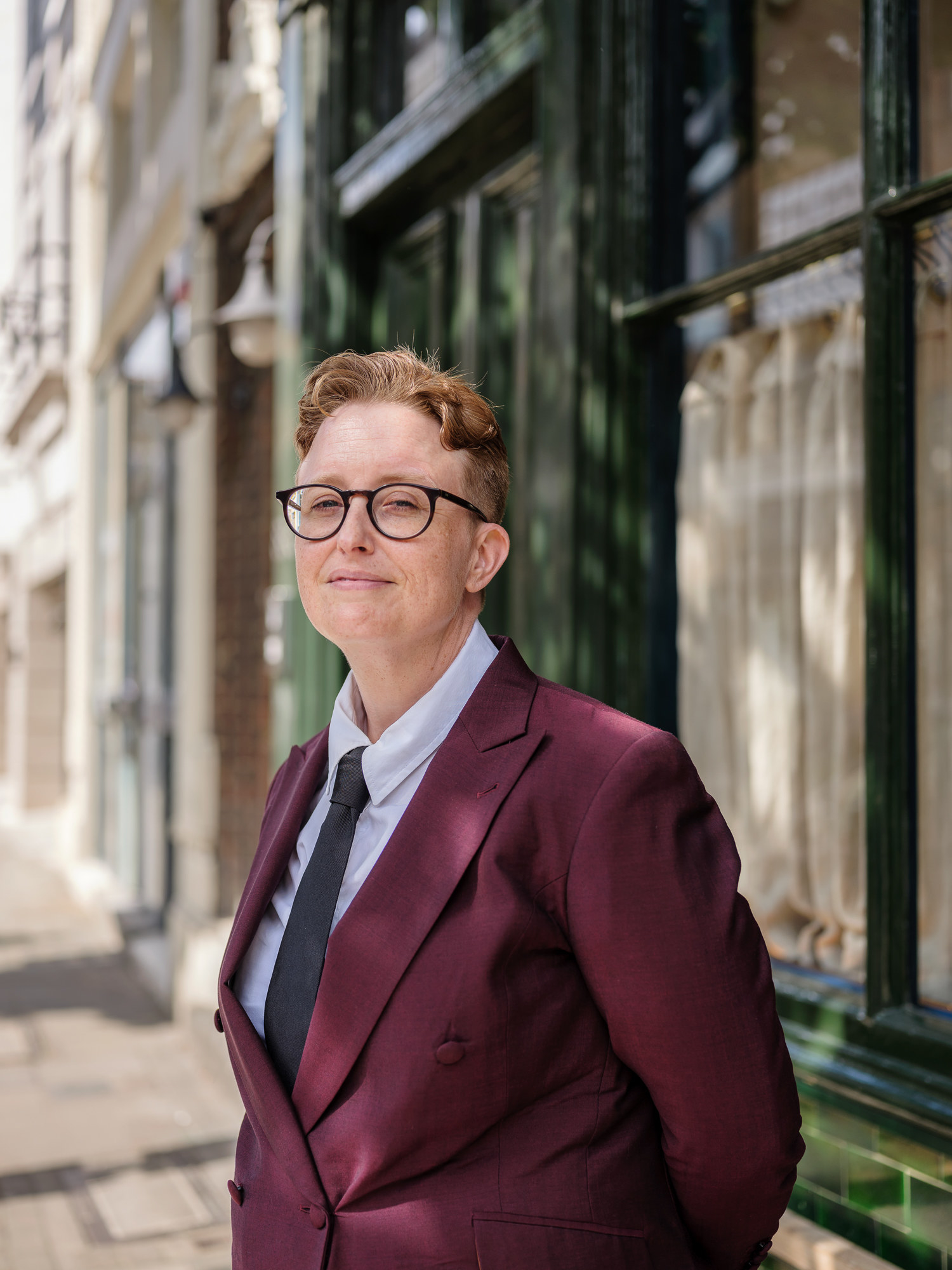
“The way some of the discussions have become highly personal isn’t always easy,” she says, staring, rigid. “The way individuals have personally attacked me and my integrity, that has been a little wearing.” The understatement is delivered almost theatrically, as if to emphasise how much she is performing it. She begins to use words extremely carefully, aware that this is the most high-wire line of questioning: To admit to feeling devastated would be to give a victory to transphobes; to deny it would be to deny the effect of bullying.
So she attempts deflection: “It comes with the territory”, “It’s bad tactics”, “Compared to what Shon Faye [the trans writer and campaigner] gets…”
Hunt eventually offers: “I’ve given 14 years of my life to making the world a better place for LGBT people. Sometimes I haven’t done that very well and sometimes I’ve made mistakes, but I’ve done my bit. To have all that reduced to being dismissed and written off was very uncomfortable. And to be told as a lesbian that I’m not doing enough for lesbians was hard because I’m a very proud lesbian. It’s not been easy.”
From across the table, she locks eyes, now reddened and held wide as if to convey, “There is so much more, but I cannot say.”
Irony hovers, unacknowledged: The woman in charge of anti-LGBT bullying measures, whose organisation implores children to speak out and seek help, finds herself trapped, contained by the need to underplay how, even as an adult with power, public slurs affect her.
Have there been times when she’s been concerned for her well-being?
“I think so,” she says, before swiftly referring to the personal toll that working at Stonewall takes generally, for everyone there, because the nature of it draws on one’s experiences of discrimination. “It’s bruising,” she adds, again diverting from herself to credit those around her — her partner, her staff —– for their support.
But in this, there is an intriguing nugget: When social media was particularly aflame following the government’s announcement in 2017 that it would launch a public consultation about the Gender Recognition Act, and when Hunt’s experience of Twitter was an endless shelling against trans rights, the charity sought external help — specifically, to investigate what exactly was happening on social media and what it meant. It looked as though those against trans inclusion and attempts to simplify gender recognition were a large proportion of the total.
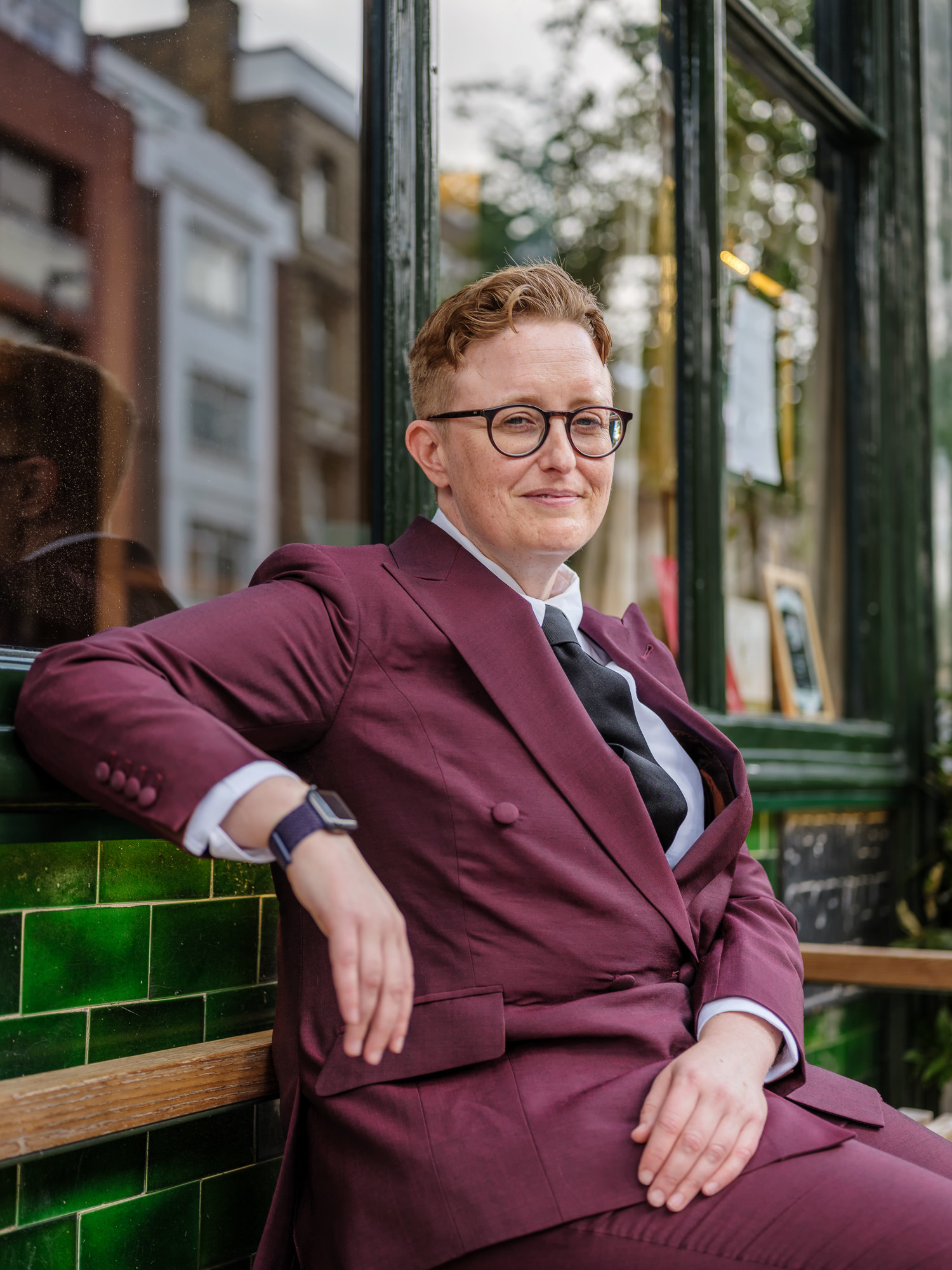
Stonewall hired a company called Build Up, which examines how social media is used amid conflict zones — usually ones with actual bombing. Its analysis stunned Hunt and her team. What she thought was a huge contingence central to public debate, and central to her experience of social media, was in fact a distinct cluster of accounts that she happened to be following, unaware of how many others were saying the opposite. “You are”, Build Up told Hunt, “utterly preoccupying yourself with this [cluster]”.
By shifting perspective, widening whom they were following and reading, Hunt and her team found that their overall view looked very different. “It was a really important intervention for the whole of Stonewall,” she says.
A similar distortion played out in the media earlier this month. The Sunday Times published a letter from 30 academics urging universities to “sever their links” with Stonewall for “stifling academia” because it encourages universities to oppose transphobia. It appeared to represent, in its dozens of signatories from across British higher education, a predominant position within academia.
But just days later, a counterpetition of academics, supporting Stonewall and opposing transphobia, attracted 3,600 signatures. This was not reported in the Sunday Times. And earlier this week, a YouGov poll found two-thirds of women believe transphobia to be “somewhat” or a “great deal” of a problem, compared with just 47% of men.
Hunt is heartened by the number of pro-trans feminists there are, despite appearances to the contrary. “I think it’s grossly underestimated quite how many people are completely fine with this,” she says. “They’ve been characterised as these millennial, hippy, queer-identifying [people], but no, these are just people getting on with their lives going, ‘What is your problem?’”
It is these people who help keep Hunt going. “I feel very optimistic about the future,” she says. “This has been rough, and I also think it’s indicative of the increasing polarisation of the world, the need to weaponise and dehumanise. Trans [people] were the first in line, and they won’t be the last.”
She also blames the government.
To wait a year between announcing it would hold a consultation on the Gender Recognition Act and actually doing so was a “cock-up” which “didn’t help” because it “created a vacuum where everyone decided to have their hot take on trans issues”.
The BBC, which has never once made Stonewall’s list of Top 100 Employers for LGBT inclusivity, isn’t without fault either, she says. It “can’t work out its relationships with inclusive leadership and its output”. It has “internal challenges”. Such “challenges” were exposed last year by BuzzFeed News through leaked WhatsApp discussions by BBC staff in which senior female producers complained that trans women could be included in on-screen gender-parity targets. Younger female staff disagreed.
Hunt damns BBC journalism as “reportage rather than investigative”. By contrast, Channel 4 is “great” and led by a CEO, Alexandra Mahon, who “gets it: the programmes are better, the staff is better”.
But whoever contributed to the acidifying of discourse surrounding trans rights, the outcome was the same: swarming transphobia, online and in the street, with heat on Stonewall and its CEO never before seen — quite like this, anyway — in its 30-year history.
Why, then, is Hunt leaving? Is it, as rumoured, because the attacks became too much?
She pauses. “No, I think it’s…” She goes on to cite any number of perfectly good, plausible reasons that would not sound alien in her next job interview: She thinks Stonewall needs “a fresh pair of eyes” who can “take this to the next stage” and “shake it up”; she “always intended to do five years”; she thinks CEOs “always stay too long”.
She insists there’s nothing more to it. For the next few years, she will be going into business with her partner, setting up a consultancy firm to advise organisations on a range of matters, including what surely will be cathartic for Hunt: how to detoxify them. Certain political parties could do with some of that, suggests BuzzFeed News.
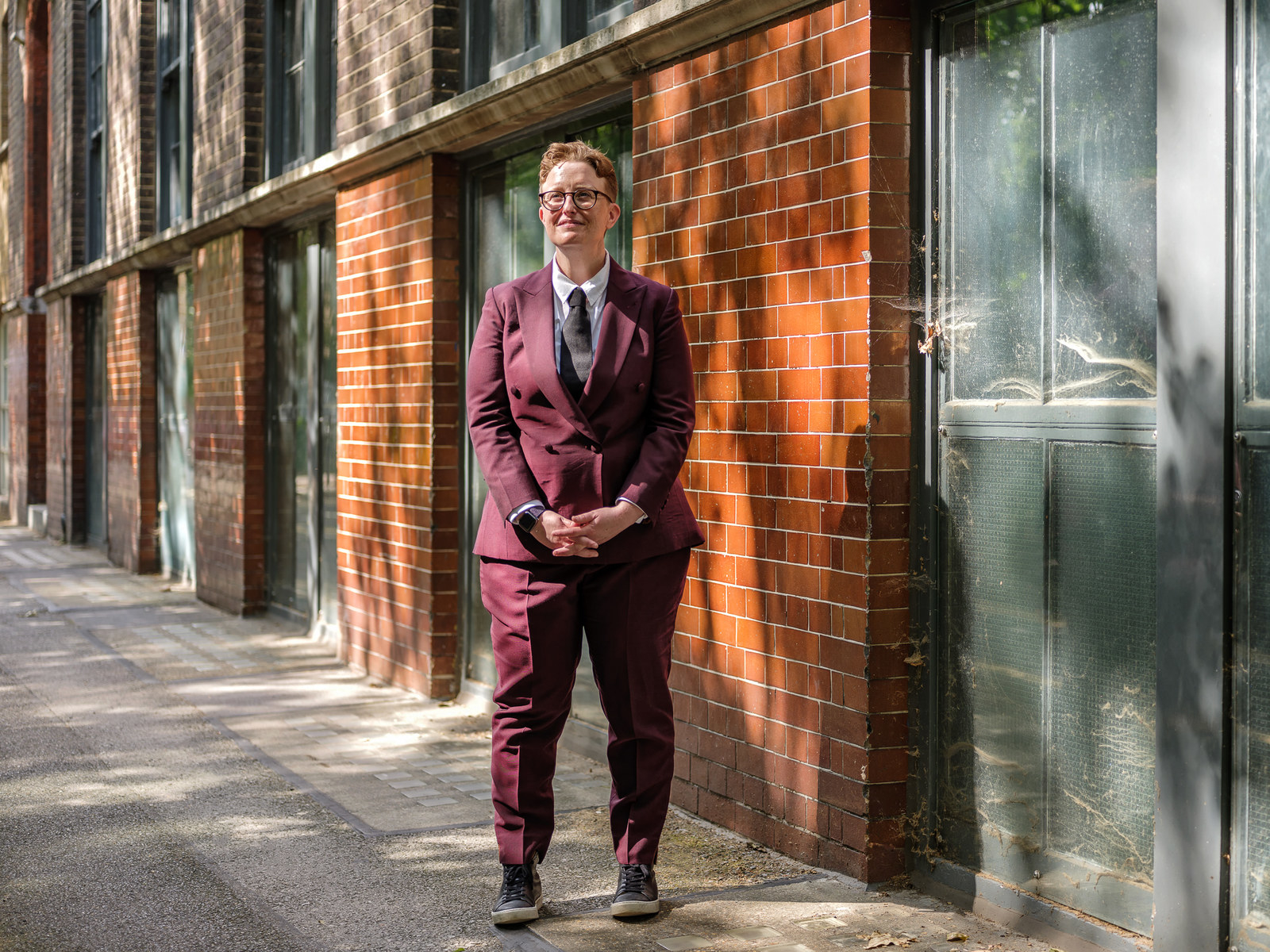
“Exactly. How do you have an organisation like the Labour Party that’s so dysfunctional and not including people?”
Until August, however, she remains in a job unlike any other she will ever have again. Was the position what she hoped?
“It was more lonely than I thought it was going to be,” she says. “You’re not one of the gang when you’re CEO.” She repeats that she made some mistakes in the early part of her tenure. A clanking example came in 2014 when she wrote in the Telegraph that Stonewall would not join the boycott of the Dorchester hotel over the then-proposed plans of its owner, the sultan of Brunei, to stone gay people to death.
“We need to avoid easy solutions that make us feel better and instead seek the solutions that work,” she wrote, even though her charity had been named after the riot at the Stonewall Inn in 1969 that helped spark the entire LGBT rights movement.
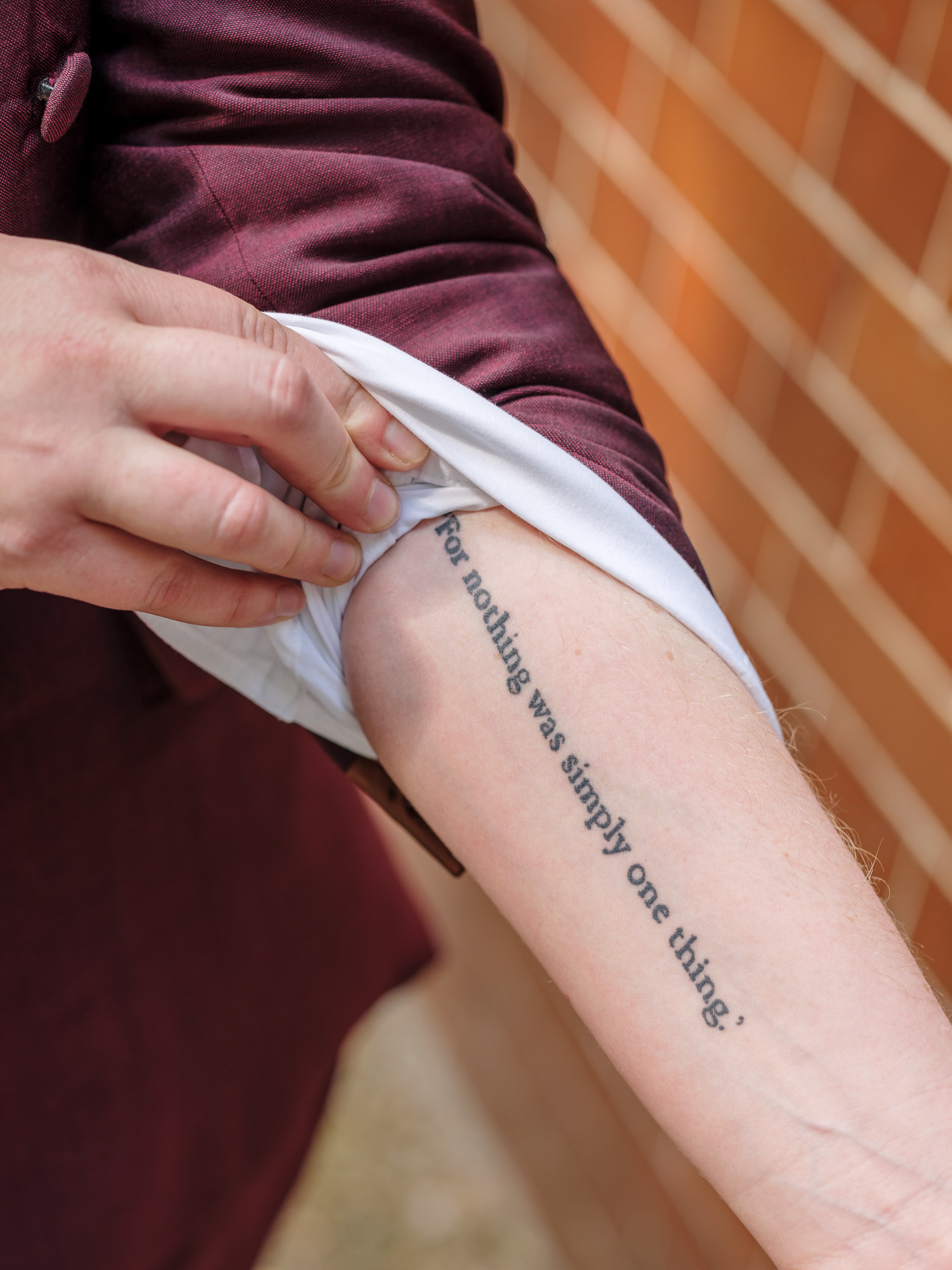
Hunt nods. “It was a massive comms fail…I didn’t know what I was doing. What I was trying to say was that boycotting is all very well, but what do the activists on the ground want?”
Her successor cannot afford to make such mistakes and will, BuzzFeed News suggests, need to have a supreme talent for navigating the media. Hunt adds to the list of attributes an “excellent lobbyist, business manager … who can talk to kids in their hoodies and to Footsie 100 companies”, and ends with a fairly noticeable jab: “Yep, so sorry I fucked up on the Dorchester.”
In a few years, Hunt says, she may enter politics. “Now”, she says, referring to the noxious bonfire ablaze in Brexit Britain, “is not the time”.
We end our discussion close to where we began: what it is to feel powerless.
Being on the street in 2019 is a “whole new level”, says Hunt, invoking the slew of recent violence against LGBT people. Her own reactions, when she was homophobically abused, have spanned “the full range”, she says.
“Someone shouted at me in Shoreditch [the ultimate in supposedly liberal gentrification]: ‘Fucking dyke’. I was on my bike and said, ‘You can’t say that!’ and suddenly all his mates were around.”
Panicked and shocked, Hunt and her partner rode off, escaping — that time. But there is no real escape. “We forget how much we brace ourselves for that,” she says. “Gay men who say it’s all fine now? They also know that they let go of their partner’s hand on a certain street. It’s instinctive. You read that street. You know instantly it’s no longer safe; you adjust and adapt. It’s hardwired into us, that anticipation, navigation, prevention.”
It is what psychotherapists call hypervigilance: heightened awareness of danger, born of consistent or extreme exposure to it. An entire community of people who never feel fully safe. Fifty years, this week, after the Stonewall riots. Thirty years after the launch of the Stonewall charity.
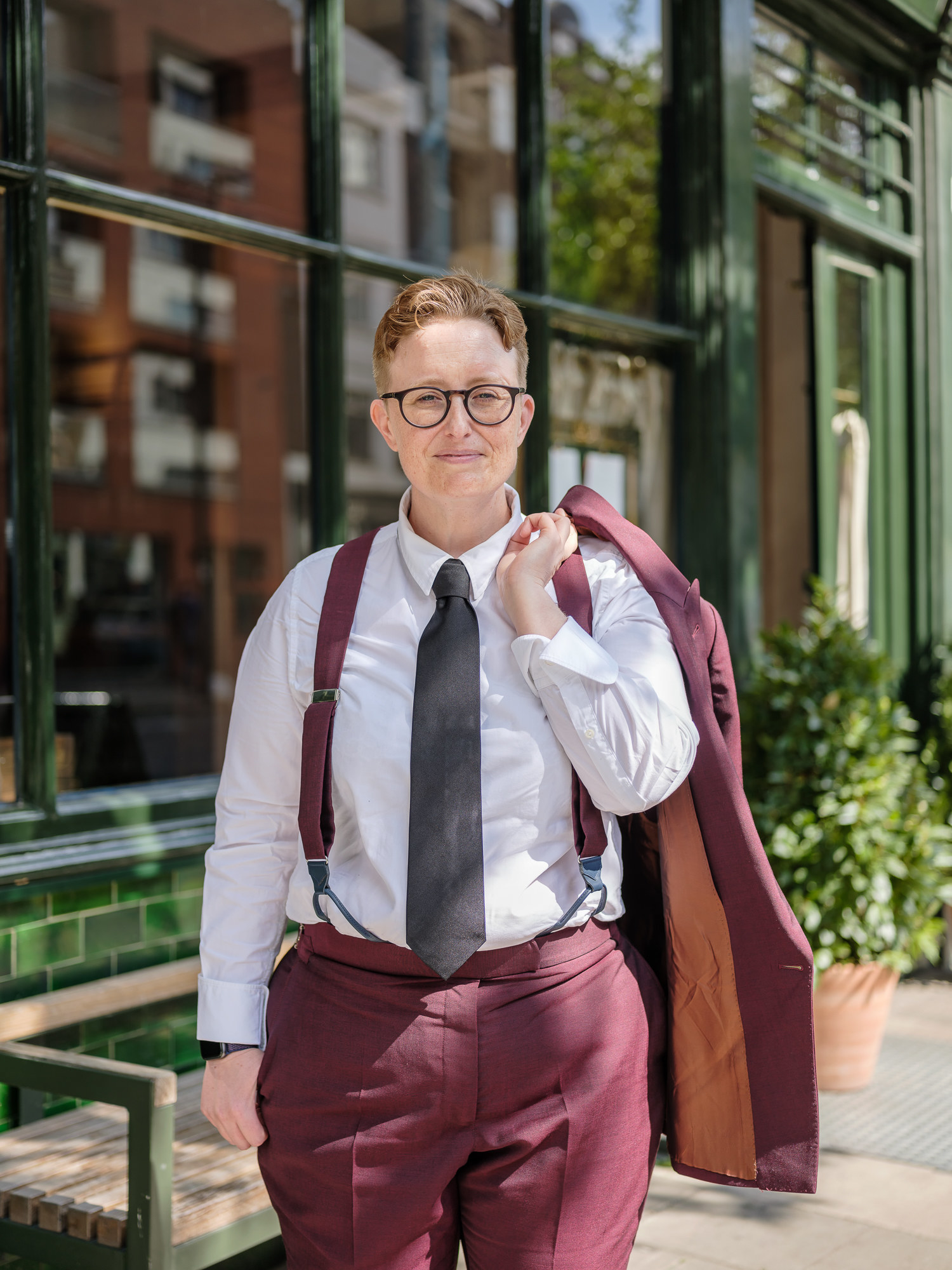
However much some might detest her positions, Ruth Hunt is nothing if not brave. In this, it is not too much of a stretch to imagine that Marsha P Johnson and Sylvia Rivera — two of the trans women who fought back at police that night in the Stonewall Inn — would say, “She’s one of us.”
The soon-to-be former CEO adjusts her gender-nonconforming trouser suit, stands, exhales, and, before walking out into the sunlight, offers an insight into herself that any LGBT person would understand: “You have to be really determined to be OK.”
If you are feeling suicidal The Samaritans free helpline can be reached 24/7 in the UK on 116 123 and The Trevor Project for LGBT people in the US is on 1-866-488-7386.
